#pierre fontaine
Text
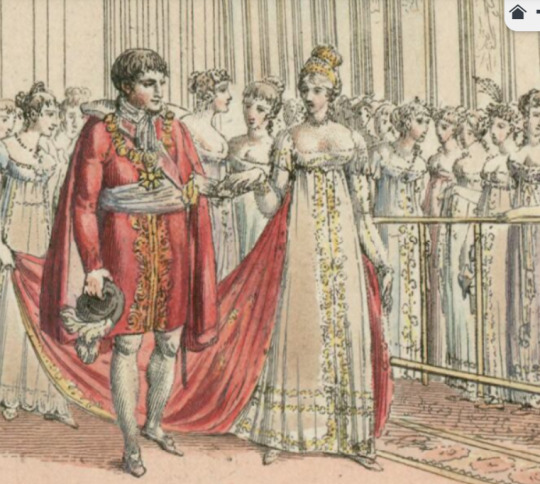
Napoleon marries Marie-Louise
...and some guys who really don't care:
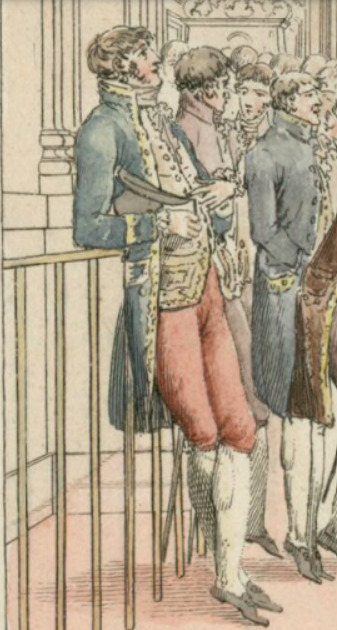
I think this was on BnF Gallica, it's by Percier or Fontaine.
34 notes
·
View notes
Text
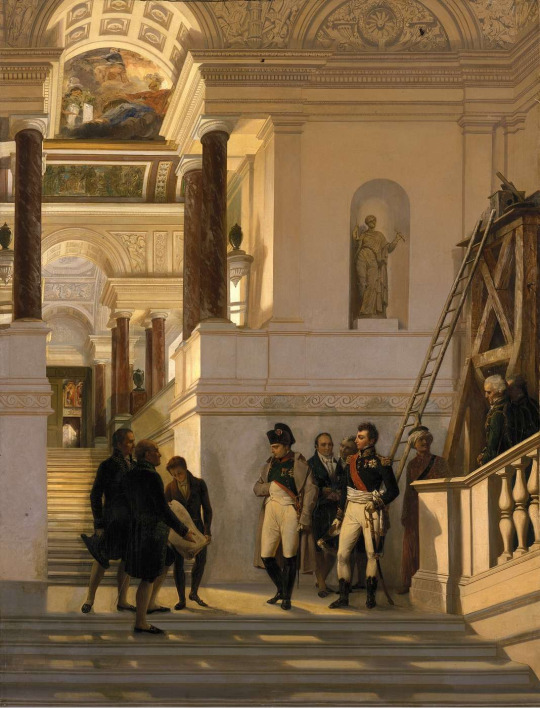
Napoleon visiting the Stairs of the Louvre under the guidance of the architects Percier and Fontaine
by Auguste Couder
#napoléon bonaparte#staircase#escalier#louvre#auguste couder#louvre museum#napoleon#bonaparte#charles percier#pierre fontaine#architects#architecture#paris#france#french#art#history#europe#european#napoleonic#neoclassical#neoclassicism#napoléon#napoleon bonaparte
138 notes
·
View notes
Text
youtube
Pierre Fontaine - Mon cuer pleure ·
Capilla Flamenca · Marnix De Cat
2 notes
·
View notes
Text

Pierre Neumann, Librairie La Fontaine, Vevey, 1990 [Galerie 1 2 3, Genève]
12 notes
·
View notes
Photo
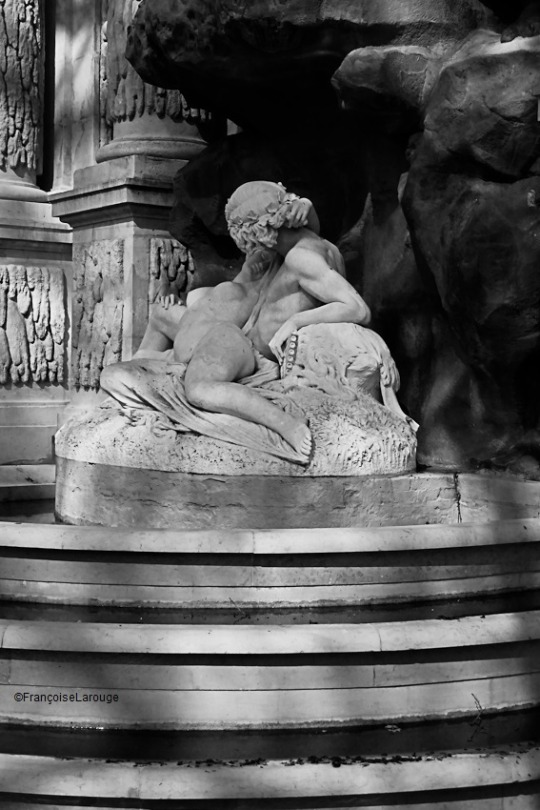
Paris Fontaine Medicis©FrançoiseLarouge
#photographers on tumblr#fontaine medicis#paris#bnwpic#noir et blanc#statues#pierre#lightandshadows#bnwphotography#bnwphotographer#bnw2023
50 notes
·
View notes
Photo
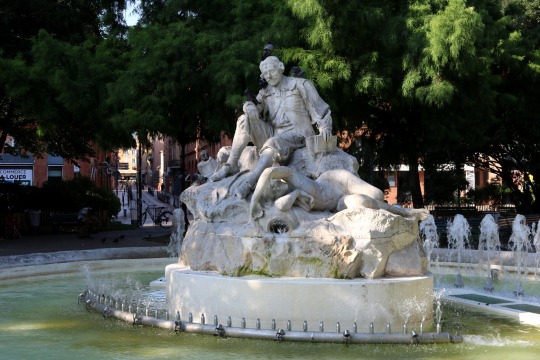
Fontaine De Pierre Goudouli
Place Du Président Thomas Wilson
Toulouse, France
#photographers on tumblr#architecture#art#fountains#toulouse#france#fontaine de pierre goudouli#morning#place du président thomas wilson#streets#street photography#original photographers#original photography
48 notes
·
View notes
Photo

Pierre Subleyras (French, 1699-1749)
Le Faucon (La Fontaine, Contes), c.1725-50
#Pierre Subleyras#french#france#Le Faucon#La fontaine#art#fine art#oil painting#european art#western civilization
28 notes
·
View notes
Photo


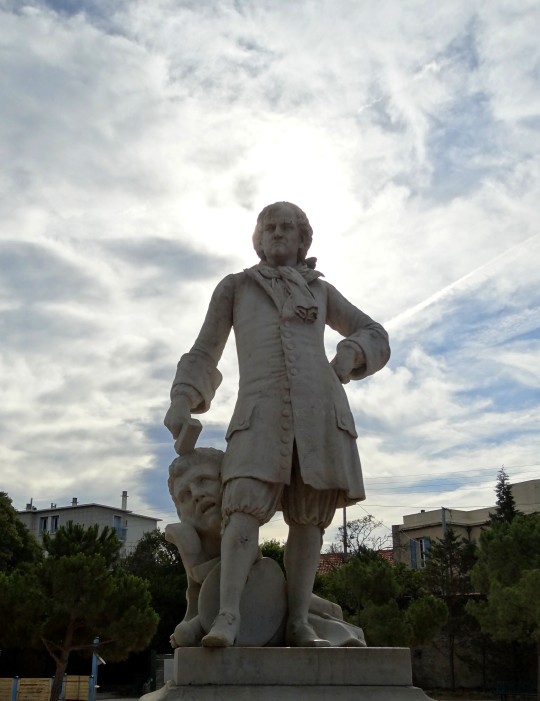


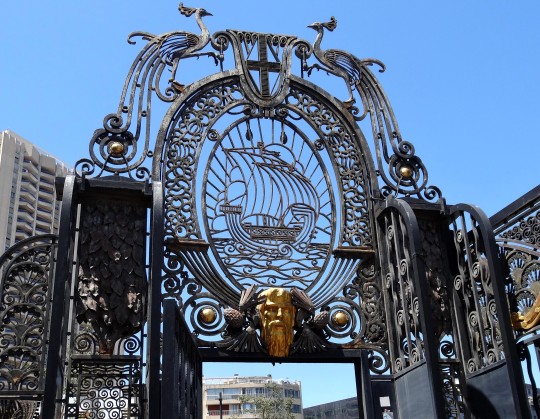
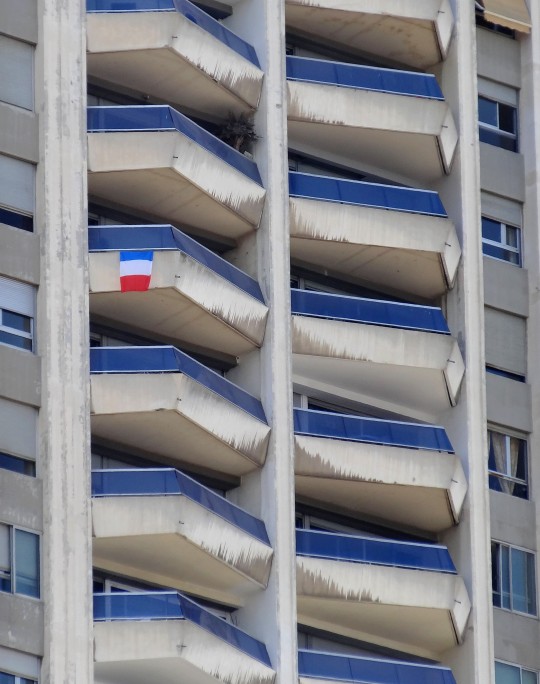
Nouveau retour à mon projet de présenter la plupart de mes 55500 photos (et des brouettes). Plus trop loin du présent….
2016. Marseille en été. En alternance, le Parc Borély avec un pin étrangement tordu et une statue de Puget et le Parc Chanot avec une fontaine Art Nouveau et sa grille plus Art Déco.
3 notes
·
View notes
Text
The Fall of Fouquet
Of those who sat in Louis XIV's council in March 1661, Nicolas Fouquet was beyond a shadow of a doubt the most charismatic and flamboyant. His background was typical of the upwardly mobile noblesse de robe, and his family like so many others had invested a fortune accumulated as drapers merchants in ennobling office. Fouquet’s grandfather and his father, François, had both served as judges in the Parlement of Paris, and his mother, Marie de Maupeou, was herself a member of another rising robe clan. The family had acquired an impressive reputation for piety, and its links to Saint Vincent de Paul, the parti dévot, and the Compagnie du Saint-Sacrement had opened additional doors to the powerful. All six of Marie’s surviving daughters entered the religious life, as would three of her five sons. Nicolas, on the other hand, was destined for a career in royal service, joining first the Parlement of Metz, and then, following the route trekked by countless aspiring young robins, by purchasing the office of maître des requêtes and serving as an intendant, attracting the attention of Mazarin in the process. In 1650, he had bought the prestigious office of procureur général in the Parlement of Paris, and having proved himself scrupulously loyal to Mazarin he was rewarded with the post of surintendant des finances in 1653.
As surintendant he was responsible for government fiscal policy in the aftermath of the Fronde and was charged with finding the funds needed to prosecute the seemingly endless war with Spain, proving remarkably able and helping to secure a French victory consummated in the Peace of the Pyrenees of November 1659. Anyone capable of surviving for long in the cut-throat world of seventeenth-century finance was, almost by definition, talented, and no less certain to become fabulously rich. Fouquet was no exception, and by 1661 he had added prodigious wealth to an already substantial family fortune that was made manifest in the construction of the beautiful château of Vaux-le-Vicomte, only a few miles from the royal palace of Fontainebleau. Designed by the architect Louis Le Vau and with its interiors decorated by Charles Le Brun, Vaux-le-Vicomte was an aesthetic triumph set within majestic gardens, created by André Le Nôtre, complete with ornamental fountains that have rightly been seen as an inspiration for Versailles. A man of taste and refinement, Fouquet forged a reputation as a generous artistic patron, and, amongst others, Molière, Pierre Corneille, Jean de La Fontaine, and Paul Pellisson benefitted from the surintendant’s largesse. Despite his family’s impeccable dévot credentials, Nicolas moved in eclectic and heterodox intellectual circles, and, much to his mother’s chagrin, his reputed good looks and genuine charm had given him an established reputation as a gallant.

(Fouquet on the left, Louis XIV on the right)
Rich, self-confident, and having proved himself to be an able and loyal servant of the crown, Fouquet, at only forty-six years of age, had every reason to suppose that a long and profitable career stretched before him. His actions in the months following the cardinal’s death were certainly not those of a man harbouring any inner self-doubts. In August 1661, he agreed to sell his office of procureur général in the Parlement to his friend Achille de Harlay, presumably confident that his interests in the court would be well served as he also had close ties with its first president, Guillaume de Lamoignon. More dramatically, on 17 August 1661, Fouquet threw one of the most notorious parties in French history. Using the magnificence of Vaux-le-Vicomte as the setting, the guests, who included large swathes of the French governing elite, were treated to a sumptuous fête, with a theatrical performance directed by Molière, fireworks, and other entertainments all ostensibly in honour of the king. Popular tradition, reinforced by numerous literary and cinematic productions, maintains that Louis XIV, furious at being upstaged by a mere minister and convinced that such lavish display could only be at his own expense, swore revenge. Fouquet had undoubtedly been tactless as the interior of the château boasted a lavish state bedroom, complete with railed bed, which had been prepared as if the monarch was intending to be a regular guest of his munificent minister. Those aristocrats present were horrified that a mere robin should be so presumptuous and the king almost certainly shared their prejudices. If this was the case, he was nevertheless careful to conceal his fury and neither Fouquet nor contemporary witnesses interpreted events in quite the dramatic fashion of later commentators, and the minister continued to work almost daily with the king.
At the end of August, the monarch and his entourage began a tour of Brittany, timed to coincide with the assembly of the provincial estates. By now, the surintendant had received a number of quite explicit warnings about threats to his position and he was growing anxious. Despite his misgivings, he travelled to Nantes and while he was suffering from a fever the king had sent for news of his health, which must have helped to allay his fears. If Louis-Henri de Loménie de Brienne, who was present on the scene, is to be believed, Fouquet even had hopes that it would be Colbert who would be arrested and that his position was secure. On 5 September, the surintendant was well enough to work as normal with the king, but as he left the audience he was accosted by Charles d’Artagnan and a detachment of musketeers. D’Artagnan promptly arrested an astonished Fouquet, who is said to have exclaimed that ‘he thought that he held a higher place in the king’s esteem than anyone else in the kingdom’. If that was indeed the case, then it was a monumental misjudgement because he had just plunged into the most profound disgrace.

D'Artagnan (left) arrests Fouquet (right)
Almost immediately it became apparent that the fall of Fouquet was no momentary loss of favour. Instead it had been carefully premeditated over several months by Louis XIV and Jean-Baptiste Colbert, another aspiring robe noble who had made his fortune as the steward of Mazarin’s private fortune. Colbert not only replaced Fouquet at the head of government finances, but he also directed a trial that was intended to conclude in a death sentence against his imprisoned rival. Fouquet’s brothers, his wife, mother, and close associates were either arrested or exiled, his papers seized in circumstances that made a travesty of the law, and he was brought before a specially convoked commission, not the Parlement of Paris as would have been his right had he not sold his office to Achille de Harlay only a few weeks before. Fouquet had seriously undermined his own political position, and recent precedents were grim. Had Richelieu been directing affairs, Fouquet would have been fortunate indeed to escape the block. However, Colbert seems to have been determined to use Fouquet as a scapegoat for the endemic corruption that both men had profited from, and which had been one of the defining features of Mazarin’s ministry. Fouquet was therefore accused of péculat, an elastic term encompassing a wide range of financial misdemeanours. While burrowing around in Fouquet’s château of Saint-Mandé, the investigators also stumbled across some secret documents from 1658 outlining a strategy for revolt in the event of his arrest. Although it was clear that they were intended for use against Mazarin, not the king, it was decided to add the capital charge of lese-majesty to the existing accusations against the prisoner.
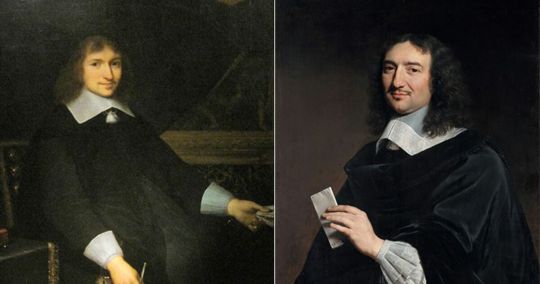
(Fouquet vs Colbert, there will be only one)
Raking up all manner of supposed earlier misdeeds against a disgracié was common practice. On this occasion it proved counterproductive, and had the government moved quickly it could conceivably have obtained a rapid judgement and the desired death sentence. Instead, it tried to dig up more and more evidence and the trial proper did not commence until 3 March 1662. Confronted by a complicated mass of financial accusations and with Fouquet putting up a spirited and effective defence of his actions, the case dragged on for over two years. Colbert and the king grew increasingly frustrated, meddling with legal procedure, seeking to intimidate judges and witnesses alike and making it clear that while they wanted to give the impression of a fair trial it should not be at the expense of a guilty verdict. Fouquet’s family and his many friends and admirers gradually recovered from the shock of his arrest and began an energetic campaign on his behalf, convincing a substantial part of public opinion that he was the victim of a vendetta. When the verdict was finally announced in December 1664, the judges did find the accused guilty of péculat, but rather than impose the death penalty as the government intended they voted by a small majority in favour of banishment and a substantial fine.
[..]
Fouquet’s spectacular fall is arguably the most dramatic and poignant example of the potentially calamitous consequences of ministerial disgrace. The first great political crisis of Louis XIV’s personal rule, it cast a long shadow and yet in many ways it marked the end rather than the beginning of a chapter as the age of the minister-favourite gave way to that of the secretary of state. Although Fouquet had escaped with his life, his draconian punishment was very much in the tradition of Louis XIII and Richelieu and arguably of late medieval monarchy. Rather than simply dismiss Fouquet and banish him from court, as a master would discard an unsatisfactory servant, Louis XIV had treated him as a criminal who had stolen from his treasury and plotted against his authority. It was a very political trial, one that brings to mind the treatment of Claude Barbin, following the murder of Concini, or that of the maréchal de Marillac, in the aftermath of the Day of Dupes. Indeed, Fouquet’s miserable existence in Pignerol almost bears comparison with that of cardinal Jean Balue, who according to popular legend was locked in an iron cage in the château of Loches after falling foul of Louis XI. The harsh treatment of Fouquet’s family and the confiscation of their property as well as the persecution of his friends and clients was again consistent with earlier practice, echoing in milder form the attacks on the Concini in 1617.
Julian Swann- Exile, Inprisonment or Death- The Politics of Disgrace in Bourbon France.

#xvii#julian swann#exile imprisonment or death: the politics of disgrace in bourbon france#louis xiv#nicolas fouquet#cardinal mazarin#la paix des pyrénées#louis le vau#charles le brun#jean baptiste poquelin#molière#jean de la fontaine#pierre corneille#paul pellisson#guillaume de lamoignon#achille de harlay#château de vaux le vicomte#jean baptiste colbert#d'artagnan#cardinal de richelieu#louis xiii#concino concini#claude barbin#maréchal de marillac
4 notes
·
View notes
Photo

2013 Paris
#2013#Paris#Fontaine#Fountain#color photography#photography#streetphotography#original photographers#Pierre Wayser
2 notes
·
View notes
Photo

Robert Wilson - The Fables of La Fontaine (2004)
https://robertwilson.com/les-fables-de-la-fontaine
#robert wilson#the fables of la fontaine#drawing#comédie française#2004#2000s#fable#la fontaine#pierre bergé#yves saint-laurent#france#usa#theatre#red#yellow#blue#green
4 notes
·
View notes
Text
Pierre Fontaine (c. 1380 – c. 1450)
0 notes
Photo


Nuit de Longchamp (eau de parfum)
Classique Collection
Lubin
Nose: Pierre Prot, Thomas Fontaine
Soft floral
A BURST OF BLOOMING WHITE FLOWERS AT TWILIGHT
Nuit de Longchamp has graced the shoulders of elegant women since 1937, like a magnificent manteau of white flowers blooming in the twilight. From the African shores of the Mediterranean and from Ottoman gardens, we use only the most precious blossoms and balsams with timeless scents that capture the hearts of women everywhere.
Top notes: Sicilian bergamot, Orange blossom, Nutmeg, Cardamom, Ylang ylang
Heart notes: Turkish rose, Jasmine, Florentine iris, Mysore sandalwood, Broom
Base notes: Patchouli, Haitian vetiver, Tolu, Peru balsam, Labdanum, Oak moss
#lubin#Lubin Classique#eau de parfum#pierre prot#thomas fontaine#soft floral#sicilian bergamot#orange blossom#nutmeg#cardamom#ylang ylang#turkish rose#jasmine#florentine iris#mysore sandalwood#broom#patchouli#haitian vetiver#tolu#peru balsam#labdanum#oak moss
2 notes
·
View notes
Text
EMITAI:
Women’s defiance
Against French colonizers
To preserve their rice
youtube
#emitai#random richards#poem#haiku#poetry#haiku poem#poets on tumblr#haiku poetry#haiku form#poetic#criterion collection#criterion channel#ousmane sembène#Andongo Diabon#Robert fontaine#Michel Renaudeau#Ousmane Camara#Ibou Camara#Alphonse Diatta#Pierre Blanchard#cherif tamba#colonialism#fode cambay#Etienne Mane#Joseph diatta#Dji Niassebaron#Antonio Bassene#Youtube
0 notes
Text
Gravel Landscape
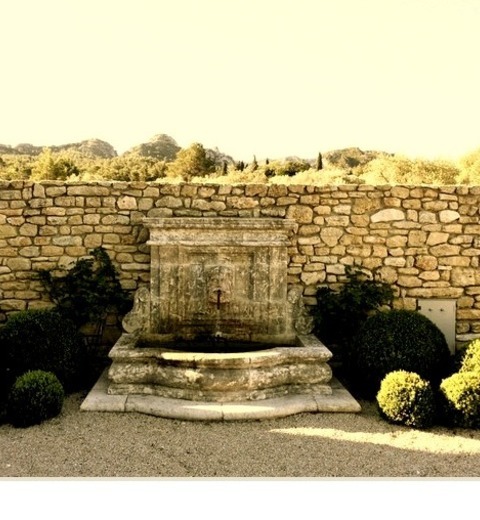
Photo of a large mediterranean backyard gravel water fountain landscape.
#bassin en pierre#paysage méditerranéen#pierre beige#mur en pierres#buis boule#bassin#ancienne fontaine
0 notes
